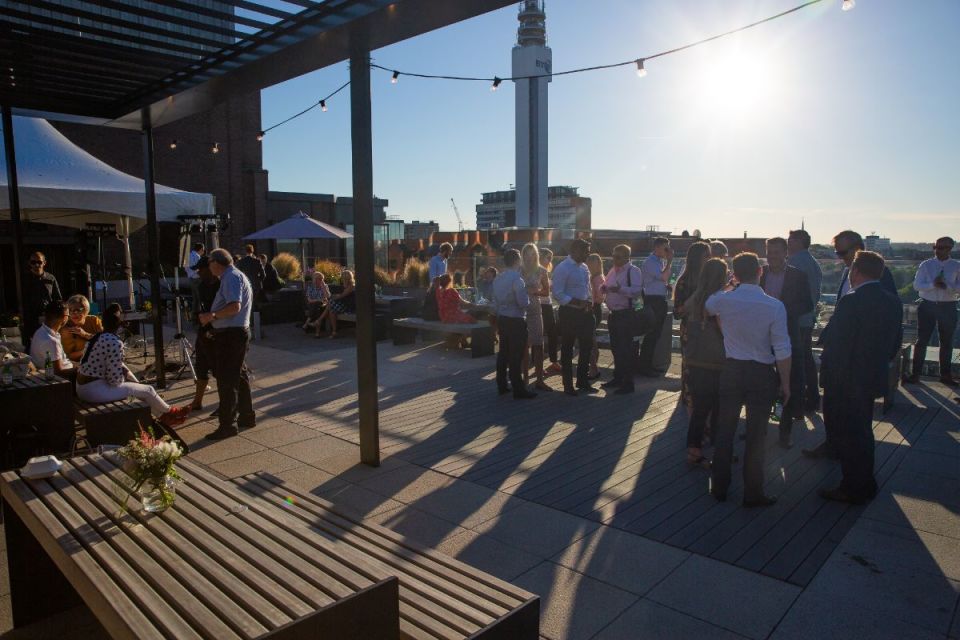How COP26 taught us that cities will be the driving force behind tackling climate change
By Bruntwood

Bev Taylor is the Director of Energy and Environment at Bruntwood. Having headed up Bruntwood’s energy business for nine years, Bev has now transitioned her role to focus on environmental efforts as the business aims for long-term sustainable growth and begins its journey to becoming net zero carbon.
As world leaders, businesses and activists head home, and the city of Glasgow takes a sigh of relief, we can now take stock and reflect on the outcomes and opportunities gained from COP26.
I’ve always imagined that environmental issues would be combatted through a combination of bottom up and top down changes. But, throughout the conference it became increasingly apparent to me that it will be the work done at a local level that will be the catalyst for change, with governments seemingly fragmented on how we tackle the big issues. It will be cities and their communities collaborating that will bring about meaningful change.
This idea that smaller changes will make a big difference, is one that is familiar to me. Sustainability has been a common thread throughout my life. I grew up in a big family where money was tight, so the principles of frugality and recycling were always instilled in me. And, fundamentally, that’s what sustainability is about – not wasting anything and looking for ways to get the most out of everything.
Cities will drive the world’s net zero carbon ambitions
Acting as a sustainable business has always been at the heart of Bruntwood’s approach – we recycle buildings and give them a second life. We know that the built environment is one of the main contributors to carbon emissions – with buildings accounting for almost 40% of total CO2 emissions globally - and we take our responsibility to play our part in changing that very seriously.
We’re also, at our core, a community-minded firm, and we care deeply about the cities we operate within and the customers that we serve. We know that we can only fulfil our purpose of creating thriving cities if we can deliver sustainable and environmentally conscious spaces that support the wellbeing of our customers, colleagues and communities.
And, we frequently talk about the importance of being flexible and agile when responding to situations, and throughout COP26 we saw cities across the world taking the same approach. Cities want to help themselves and each other, so they will really be driving that change.
Last week, I joined the International Mayors Panel Session conversation at COP26 where several Mayors from cities across the world discussed what action they were taking, and it was evident that having a deep understanding of the impact that any measures to limit climate change would have on local people was incredibly important. This was particularly relevant to those working in industrial areas, where people’s livelihood is directly linked to changes in industry.
We need to work to alleviate the fears of those who live and work within our communities and get them on board to help us tackle climate change.
Collaboration at a local level is imperative
One of the most refreshing things to come out of the conference was an understanding of our impact and the need for collaboration to bring about meaningful change.
Individually, we can of course make a difference, but it is when we work together that we are most powerful.
For property firms, this means engaging with customers, local authorities, civic organisations and business leaders to create a holistic plan for our cities and communities.
It was heartening to see that this is exactly what was happening throughout the last couple of weeks. There was a real focus on partnerships, knowledge sharing and moving forward together. And, for many, coming together and creating a level playing field for everyone was at the centre of the agenda. It’s time for cities across the UK to work together and make decisions that are right for everyone.
Given the scale of the challenge, it’s very easy to have moments where you can’t see the wood for the trees. But COP26 provided a great opportunity to get inspired and feel reinvigorated to face the challenges ahead. The conference reinforced to me the idea that despite some of the things that I think are broken, the collective will of younger people pushing for change, and increased engagement from those in a position to create that change, are now coming into alignment.
Once we get to that collective position where everyone is pulling in the same direction, we will be able to achieve amazing things. I can’t wait to be part of that change.
Stay Connected!
Sign up to our newsletter for the latest news, updates and offers.